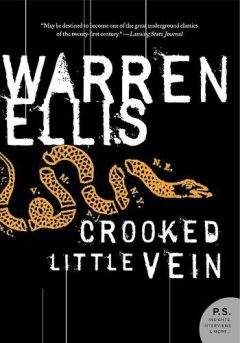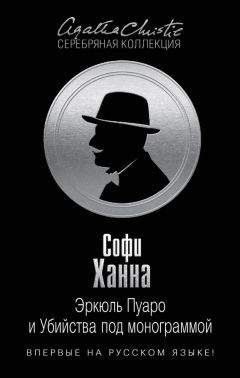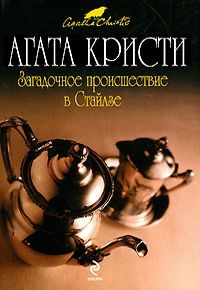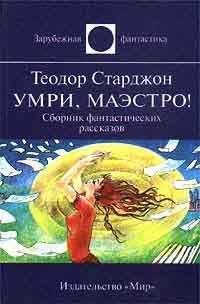[311] There was a pause, and then Dr. Bauerstein drew two keys from his pocket, and handed them to John.
[312] "These are the keys of the two rooms. I have locked them and, in my opinion, they would be better kept locked for the present."
[313] The doctors then departed.
[314] I had been turning over an idea in my head, and I felt that the moment had now come to broach it. Yet I was a little chary of doing so. John, I knew, had a horror of any kind of publicity, and was an easygoing optimist, who preferred never to meet trouble half-way. It might be difficult to convince him of the soundness of my plan. Lawrence, on the other hand, being less conventional, and having more imagination, I felt I might count upon as an ally. There was no doubt that the moment had come for me to take the lead.
[315] "John," I said, "I am going to ask you something."
"Well?"
[316] "You remember my speaking of my friend Poirot? The Belgian who is here? He has been a most famous detective."
"Yes."
[317] "I want you to let me call him in-to investigate this matter."
[318] "What-now? Before the post-mortem?"
[319] "Yes, time is an advantage if-if-there has been foul play."
[320] "Rubbish!" cried Lawrence angrily. "In my opinion the whole thing is a mare's nest of Bauerstein's! Wilkins hadn't an idea of such a thing, until Bauerstein put it into his head. But, like all specialists, Bauerstein's got a bee in his bonnet. Poisons are his hobby, so of course he sees them everywhere."
[321] I confess that I was surprised by Lawrence's attitude. He was so seldom vehement about anything.
[322] John hesitated.
[323] "I can't feel as you do, Lawrence," he said at last. "I'm inclined to give Hastings a free hand, though I should prefer to wait a bit. We don't want any unnecessary scandal."
[324] "No, no," I cried eagerly, "you need have no fear of that. Poirot is discretion itself."
[325] "Very well, then, have it your own way. I leave it in your hands. Though, if it is as we suspect, it seems a clear enough case. God forgive me if I am wronging him!"
[326] I looked at my watch. It was six o'clock. I determined to lose no time.
[327] Five minutes' delay, however, I allowed myself. I spent it in ransacking the library until I discovered a medical book which gave a description of strychnine poisoning.
[328] Chapter IV. Poirot Investigates
[329] The house which the Belgians occupied in the village was quite close to the park gates. One could save time by taking a narrow path through the long grass, which cut off the detours of the winding drive. So I, accordingly, went that way. I had nearly reached the lodge, when my attention was arrested by the running figure of a man approaching me. It was Mr. Inglethorp. Where had he been? How did he intend to explain his absence?
[330] He accosted me eagerly.
"My God! This is terrible! My poor wife! I have only just heard."
[331] "Where have you been?" I asked.
[332] "Denby kept me late last night. It was one o'clock before we'd finished. Then I found that I'd forgotten the latch-key after all. I didn't want to arouse the household, so Denby gave me a bed."
[333] "How did you hear the news?" I asked.
[334] "Wilkins knocked Denby up to tell him. My poor Emily! She was so self-sacrificing-such a noble character. She over-taxed her strength."
[335] A wave of revulsion swept over me. What a consummate hypocrite the man was!
[336] "I must hurry on," I said, thankful that he did not ask me whither I was bound.
[337] In a few minutes I was knocking at the door of Leastways Cottage.
Getting no answer, I repeated my summons impatiently. A window above me was cautiously opened, and Poirot himself looked out.
[338] He gave an exclamation of surprise at seeing me. In a few brief words, I explained the tragedy that had occurred, and that I wanted his help.
[339] "Wait, my friend, I will let you in, and you shall recount to me the affair whilst I dress."
[340] In a few moments he had unbarred the door, and I followed him up to his room. There he installed me in a chair, and I related the whole story, keeping back nothing, and omitting no circumstance, however insignificant, whilst he himself made a careful and deliberate toilet.
[341] I told him of my awakening, of Mrs. Inglethorp's dying words, of her husband's absence, of the quarrel the day before, of the scrap of conversation between Mary and her mother-in-law that I had overheard, of the former quarrel between Mrs. Inglethorp and Evelyn Howard, and of the latter's innuendoes.
[342] I was hardly as clear as I could wish. I repeated myself several times, and occasionally had to go back to some detail that I had forgotten. Poirot smiled kindly on me.
[343] "The mind is confused? Is it not so? Take time, mon ami. You are agitated; you are excited-it is but natural. Presently, when we are calmer, we will arrange the facts, neatly, each in his proper place. We will examine-and reject. Those of importance we will put on one side; those of no importance, pouf!"-he screwed up his cherub-like face, and puffed comically enough-"blow them away!"
[344] "That's all very well," I objected, "but how are you going to decide what is important, and what isn't? That always seems the difficulty to me."
[345] Poirot shook his head energetically. He was now arranging his moustache with exquisite care.
[346] "Not so. Voyons![10] One fact leads to another-so we continue. Does the next fit in with that? A merveille![11] Good! We can proceed. This next little fact-no! Ah, that is curious! There is something missing-a link in the chain that is not there. We examine. We search. And that little curious fact, that possibly paltry little detail that will not tally, we put it here!" He made an extravagant gesture with his hand. "It is significant! It is tremendous!"
"Y-es-"
[347] "Ah!" Poirot shook his forefinger so fiercely at me that I quailed before it. "Beware! Peril to the detective who says: 'It is so small-it does not matter. It will not agree. I will forget it.' That way lies confusion! Everything matters."
[348] "I know. You always told me that. That's why I have gone into all the details of this thing whether they seemed to me relevant or not."
[349] "And I am pleased with you. You have a good memory, and you have given me the facts faithfully. Of the order in which you present them, I say nothing-truly, it is deplorable! But I make allowances-you are upset. To that I attribute the circumstance that you have omitted one fact of paramount importance."
[350] "What is that?" I asked.
[351] "You have not told me if Mrs. Inglethorp ate well last night."
[352] I stared at him. Surely the war had affected the little man's brain. He was carefully engaged in brushing his coat before putting it on, and seemed wholly engrossed in the task.
[353] "I don't remember," I said. "And, anyway, I don't see--"
[354] "You do not see? But it is of the first importance."
[355] "I can't see why," I said, rather nettled. "As far as I can remember, she didn't eat much. She was obviously upset, and it had taken her appetite away. That was only natural."
[356] "Yes," said Poirot thoughtfully, "it was only natural."
[357] He opened a drawer, and took out a small despatch-case, then turned to me.
[358] "Now I am ready. We will proceed to the chateau, and study matters on the spot. Excuse me, mon ami, you dressed in haste, and your tie is on one side. Permit me." With a deft gesture, he rearranged it.
"Ca y est! Now, shall we start?"
[359] We hurried up the village, and turned in at the lodge gates. Poirot stopped for a moment, and gazed sorrowfully over the beautiful expanse of park, still glittering with morning dew.
[360] "So beautiful, so beautiful, and yet, the poor family, plunged in sorrow, prostrated with grief."
[361] He looked at me keenly as he spoke, and I was aware that I reddened under his prolonged gaze.
[362] Was the family prostrated by grief? Was the sorrow at Mrs. Inglethorp's death so great? I realized that there was an emotional lack in the atmosphere. The dead woman had not the gift of commanding love. Her death was a shock and a distress, but she would not be passionately regretted.
[363] Poirot seemed to follow my thoughts. He nodded his head gravely.
[364] "No, you are right," he said, "it is not as though there was a blood tie. She has been kind and generous to these Cavendishes, but she was not their own mother. Blood tells-always remember that-blood tells."
[365] "Poirot," I said, "I wish you would tell me why you wanted to know if Mrs. Inglethorp ate well last night? I have been turning it over in my mind, but I can't see how it has anything to do with the matter?"
[366] He was silent for a minute or two as we walked along, but finally he said:
[367] "I do not mind telling you-though, as you know, it is not my habit to explain until the end is reached. The present contention is that Mrs. Inglethorp died of strychnine poisoning, presumably administered in her coffee."
"Yes?"
[368] "Well, what time was the coffee served?"
[369] "About eight o'clock."
[370] "Therefore she drank it between then and half-past eight- certainly not much later. Well, strychnine is a fairly rapid poison. Its effects would be felt very soon, probably in about an hour. Yet, in Mrs. Inglethorp's case, the symptoms do not manifest themselves until five o'clock the next morning: nine hours! But a heavy meal, taken at about the same time as the poison, might retard its effects, though hardly to that extent. Still, it is a possibility to be taken into account. But, according to you, she ate very little for supper, and yet the symptoms do not develop until early the next morning! Now that is a curious circumstance, my friend. Something may arise at the autopsy to explain it. In the meantime, remember it."
[371] As we neared the house, John came out and met us. His face looked weary and haggard.
[372] "This is a very dreadful business, Monsieur Poirot," he said. "Hastings has explained to you that we are anxious for no publicity?"
[373] "I comprehend perfectly."
[374] "You see, it is only suspicion so far. We have nothing to go upon."
[375] "Precisely. It is a matter of precaution only."
[376] John turned to me, taking out his cigarette-case, and lighting a cigarette as he did so.
[377] "You know that fellow Inglethorp is back?"
[378] "Yes. I met him."
[379] John flung the match into an adjacent flower bed, a proceeding which was too much for Poirot's feelings. He retrieved it, and buried it neatly.
[380] "It's jolly difficult to know how to treat him."
[381] "That difficulty will not exist long," pronounced Poirot quietly.
[382] John looked puzzled, not quite understanding the portent of this cryptic saying. He handed the two keys which Dr. Bauerstein had given him to me.
[383] "Show Monsieur Poirot everything he wants to see."
[384] "The rooms are locked?" asked Poirot.
[385] "Dr. Bauerstein considered it advisable."
[386] Poirot nodded thoughtfully.
[387] "Then he is very sure. Well, that simplifies matters for us."
[388] We went up together to the room of the tragedy. For convenience I append a plan of the room and the principal articles of furniture in it.
[389] Poirot locked the door on the inside, and proceeded to a minute inspection of the room. He darted from one object to the other with the agility of a grasshopper. I remained by the door, fearing to obliterate any clues. Poirot, however, did not seem grateful to me for my forbearance.
[390] "What have you, my friend," he cried, "that you remain there like-how do you say it?-ah, yes, the stuck pig?"
[391] I explained that I was afraid of obliterating any foot-marks.
[392] "Foot-marks? But what an idea! There has already been practically an army in the room! What foot-marks are we likely to find? No, come here and aid me in my search. I will put down my little case until I need it."
[393] He did so, on the round table by the window, but it was an ill-advised proceeding; for, the top of it being loose, it tilted up, and precipitated the despatch-case on the floor.
[394] "Eh viola une*** table!" cried Poirot. "An, my friend, one may live in a big house and yet have no comfort."
[395] After which piece of moralizing, he resumed his search.
[396] A small purple despatch-case, with a key in the lock, on the writing-table, engaged his attention for some time. He took out the key from the lock, and passed it to me to inspect. I saw nothing peculiar, however. It was an ordinary key of the Yale type, with a bit of twisted wire through the handle.
![Агата Кристи - Загадочное происшествие в Стайлзе [with w_cat]](https://cdn.my-library.info/books/no-image.jpg)



